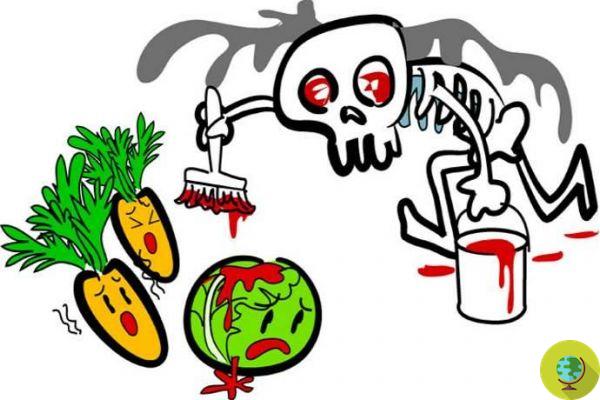
EFSA has established a new weekly tolerable dose (DST) for dioxins and PCBs.
Don't store avocado like this: it's dangerousThe European Food Safety Authority has reduced the tolerable intake level for toxic contaminants, dioxins and PCBs
EFSA confirms the conclusions of a series of studies according to which dietary exposure to dioxins and PCBs, environmental pollutants present even at low levels in food and feed, can constitute a danger to human and animal health and is for this reason which lowered the tolerable intake level for toxic contaminants, dioxins and PCBs.
EFSA's Panel on Contaminants in the Food Chain (CONTAM) thus established one new weekly tolerable dose (DST) for dioxins and dioxin-like PCBs in food of 2 picograms per kilogram of body weight.
A picogram is one trillionth of a gram and represents an intake level seven times lower than the previous level established by the Commission's Scientific Committee on the Food Sector in 2001.
The reason for this intervention is clear from an in-depth EFSA report according to which dioxins and dioxin-like PCBs are pollutants present in the environment as a consequence, respectively, of combustion processes and industrial emissions. These are pollutants that persist in the environment and can enter the food chain. They tend to accumulate in living things and are associated with public health dangers and concerns.
What are dioxins and PCBs
Le dioxins and polychlorinated biphenyls (PCBs) are toxic chemicals that remain in the environment and accumulate in the food chain. In the context of EFSA's work the term “dioxins” refers to two groups of compounds: le polychlorinated dibenzo-p-dioxins (PCDD) e i polychlorinated dibenzofurans (PCDF). Dioxins are generated by some thermal and industrial processes as by-products. PCBs were widely used in numerous industrial applications and were produced in large quantities for decades with a total world production estimated at 1,2-1,5 million tons, until they were banned in most countries at the end of the 80s.
Dioxins and PCBs are found in small quantities in many foods: long-term exposure to these substances causes a variety of harmful effects on the nervous, immune and endocrine systems, impairs reproductive function and can cause cancer.
The European Commission and member states will now discuss risk management measures following the opinion and the word will pass to individual states. It will be up to the European authorities and the EU member states to discuss risk management measures.
Read also
- Dioxin and PCBs in the eggs of some farms in Taranto
- Dioxin in eggs: Terni like Taranto with Ilva?
Germana Carillo


























